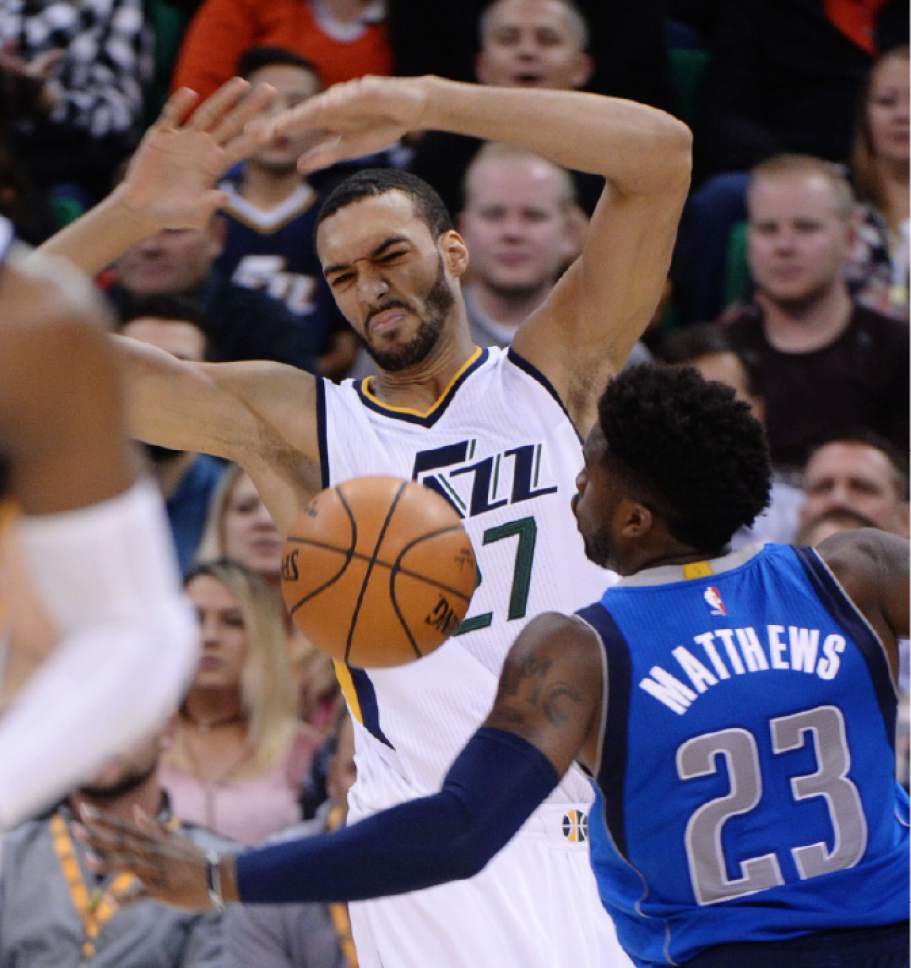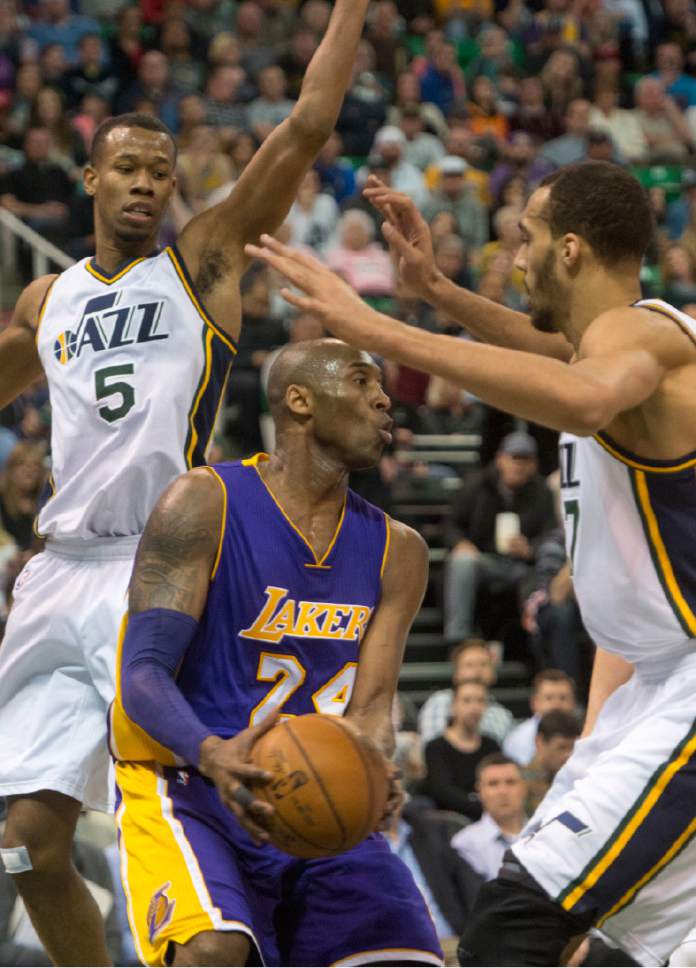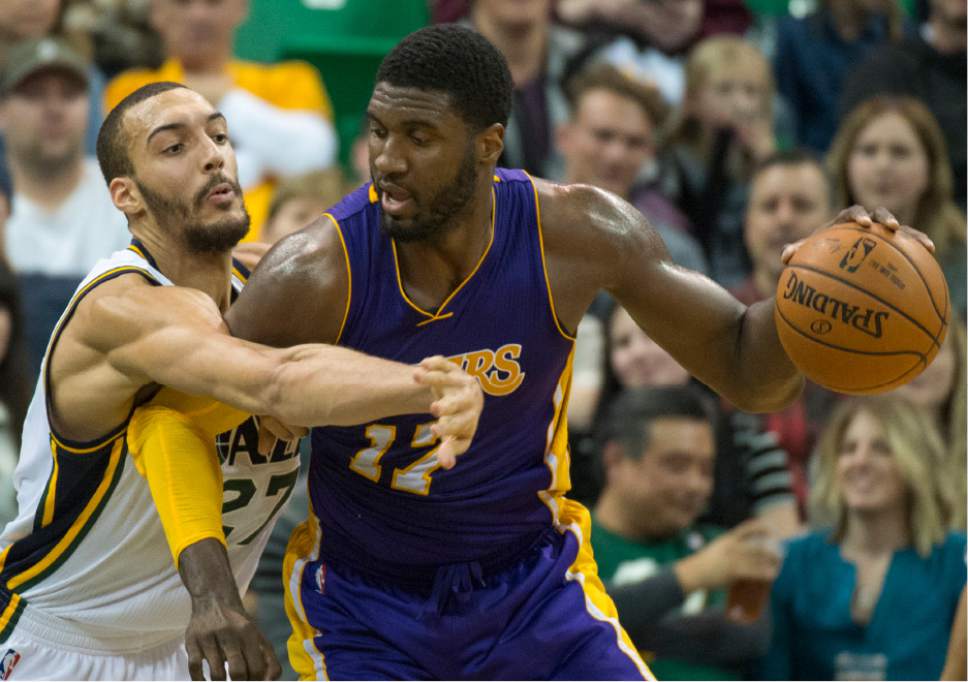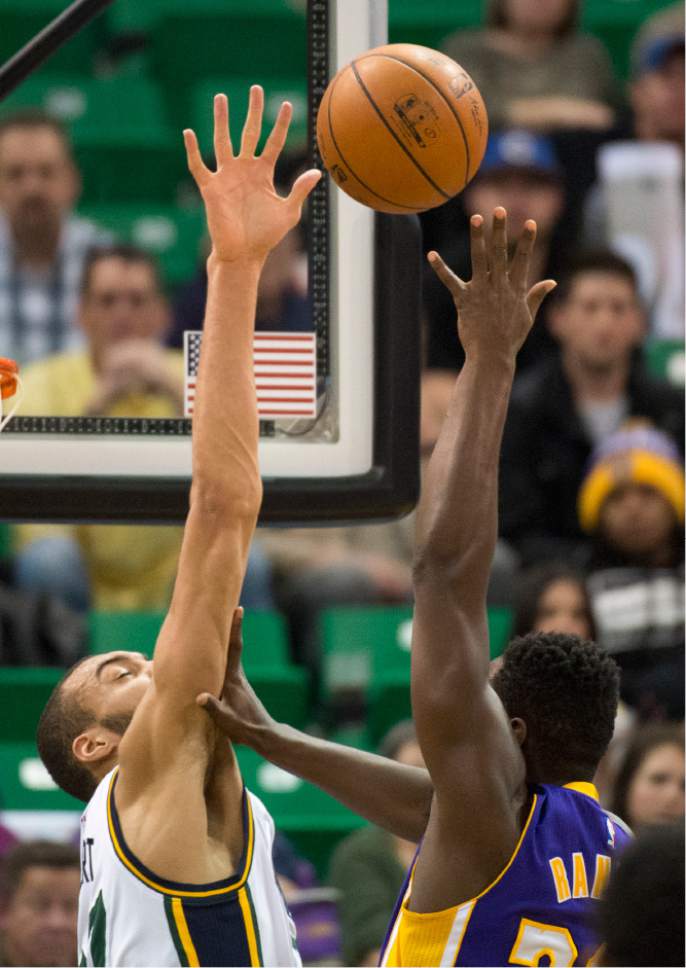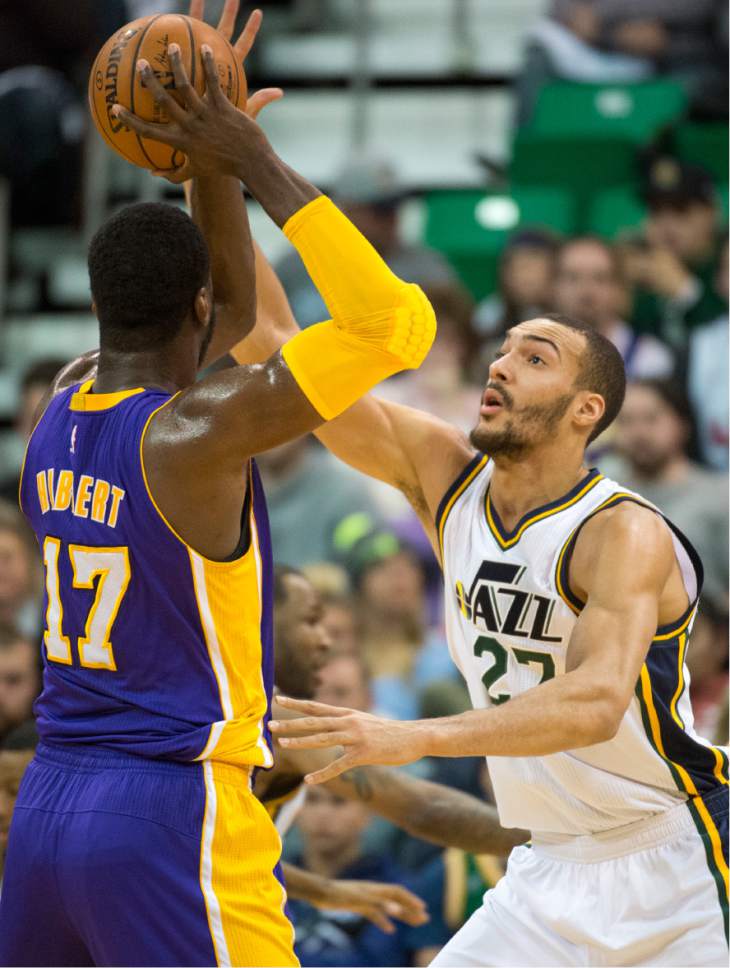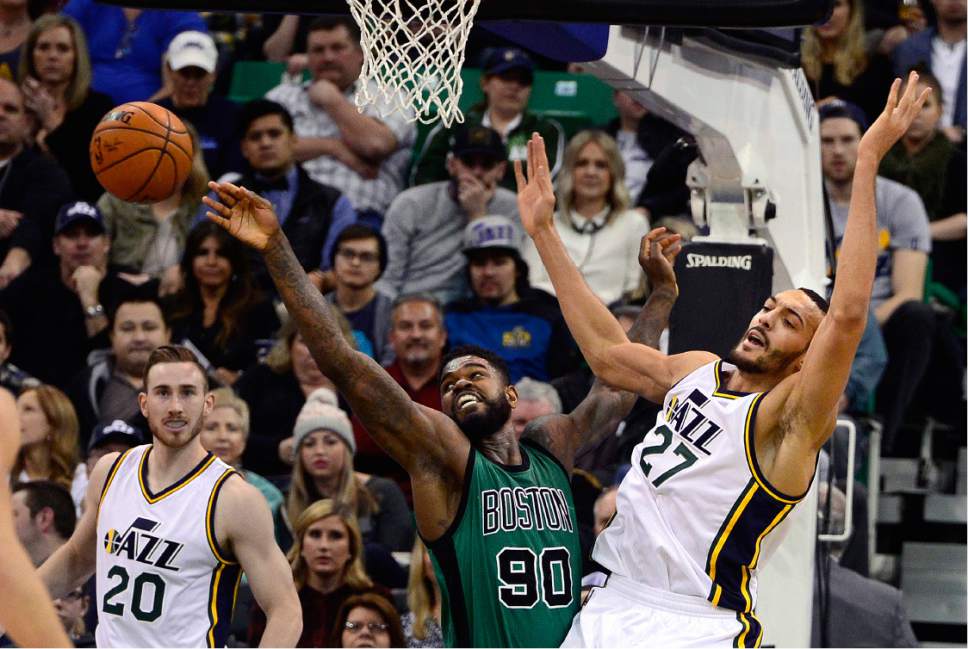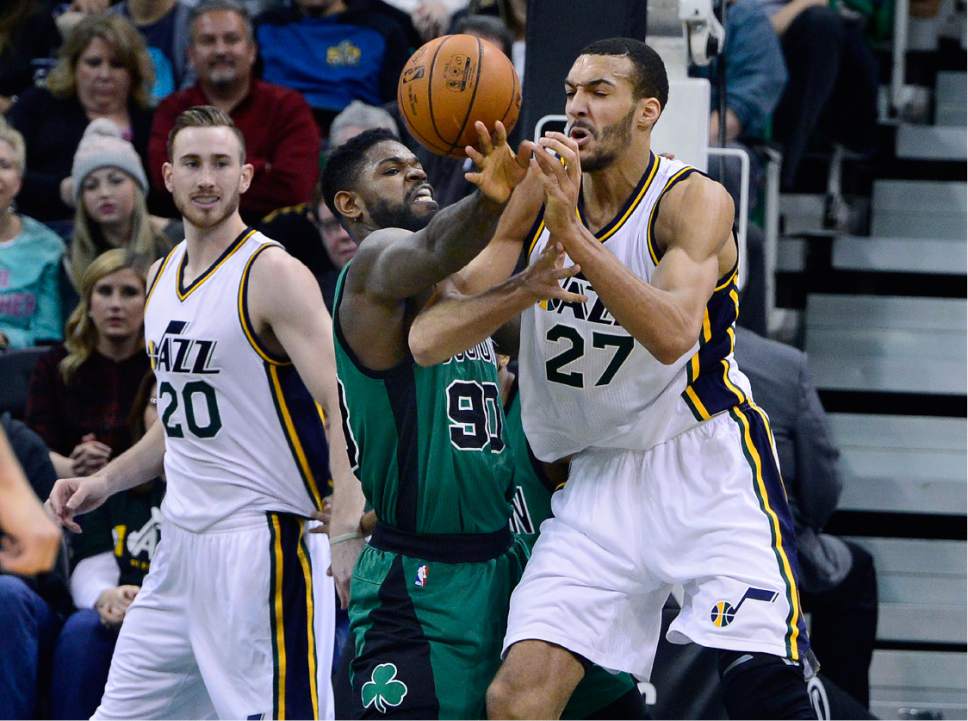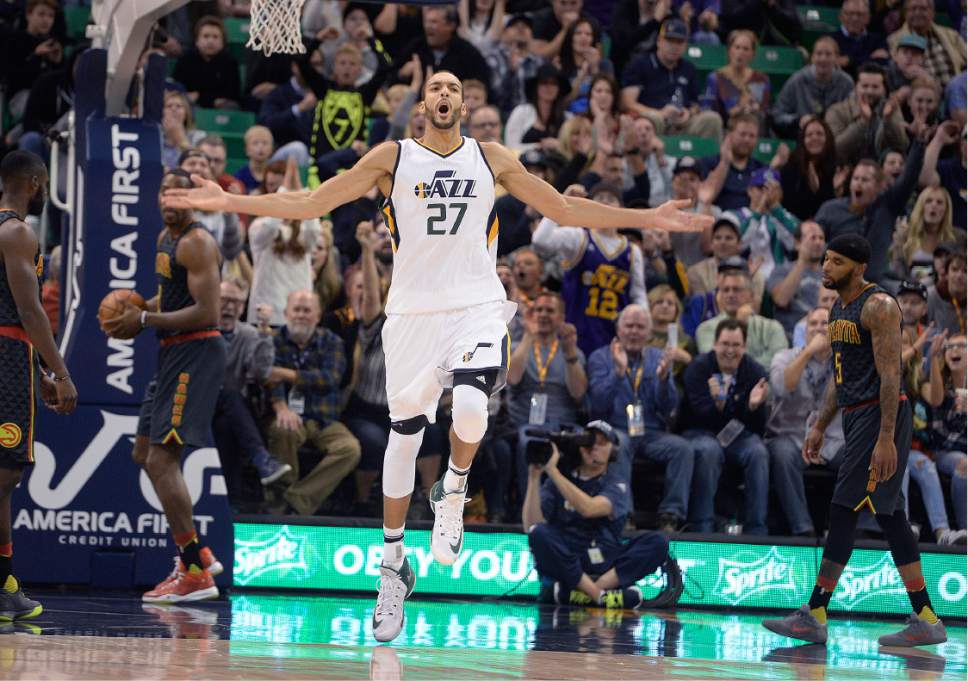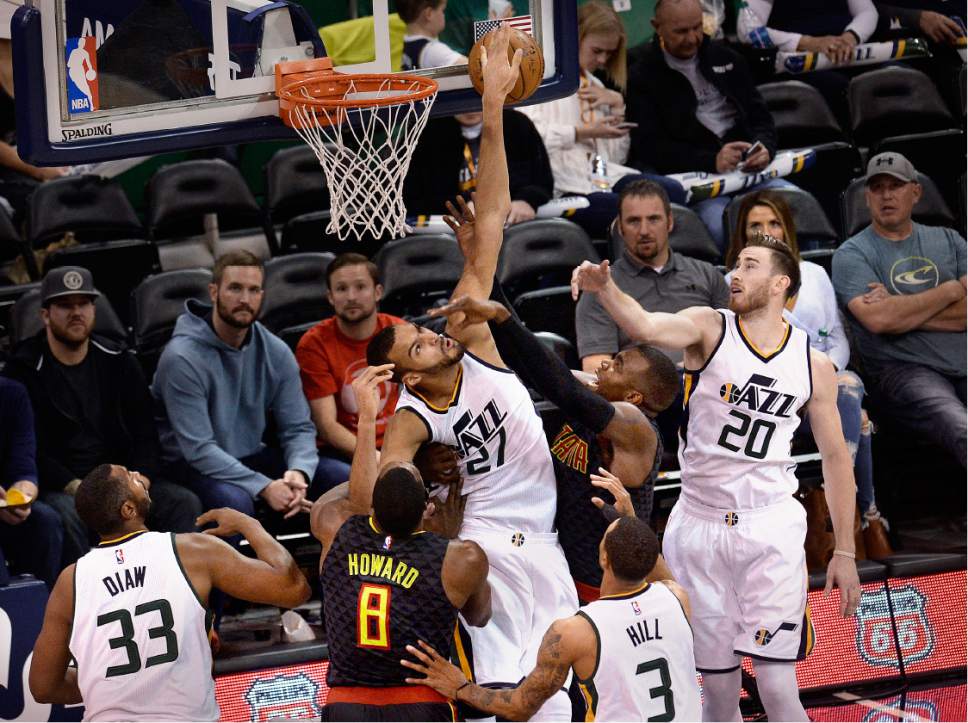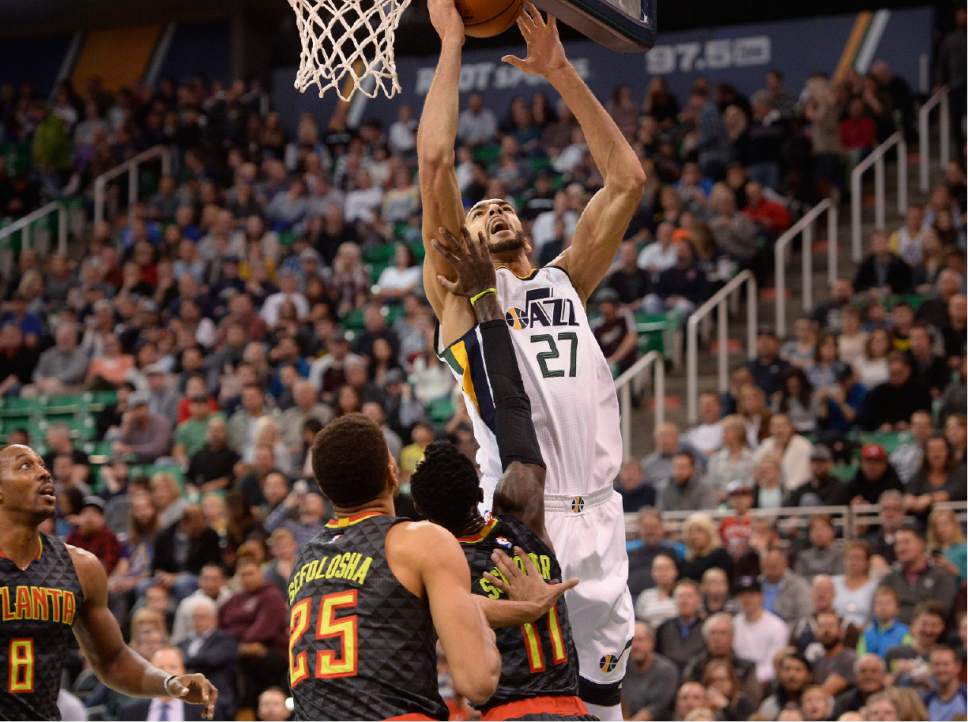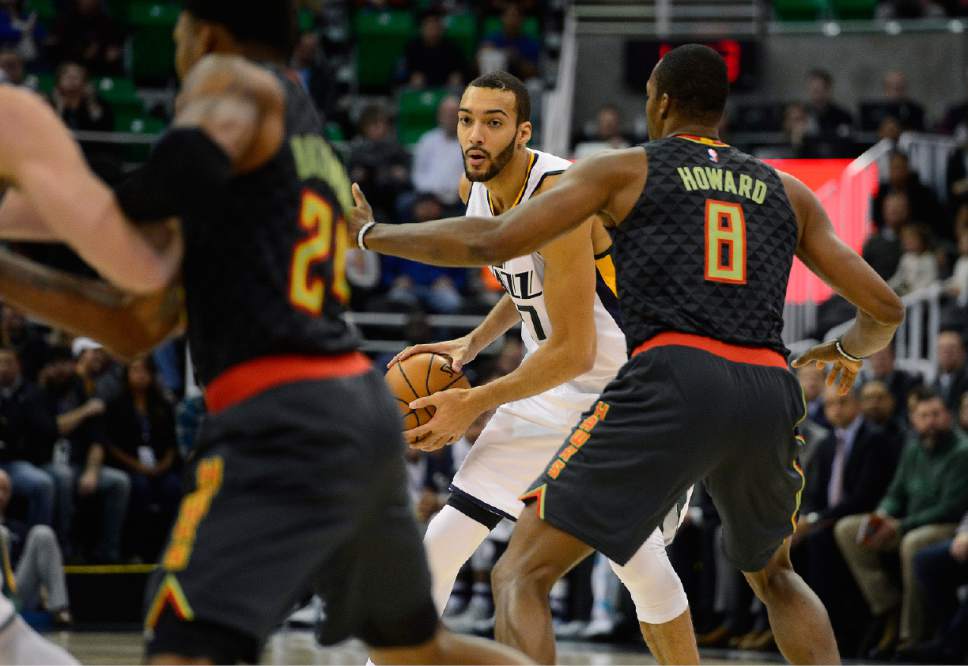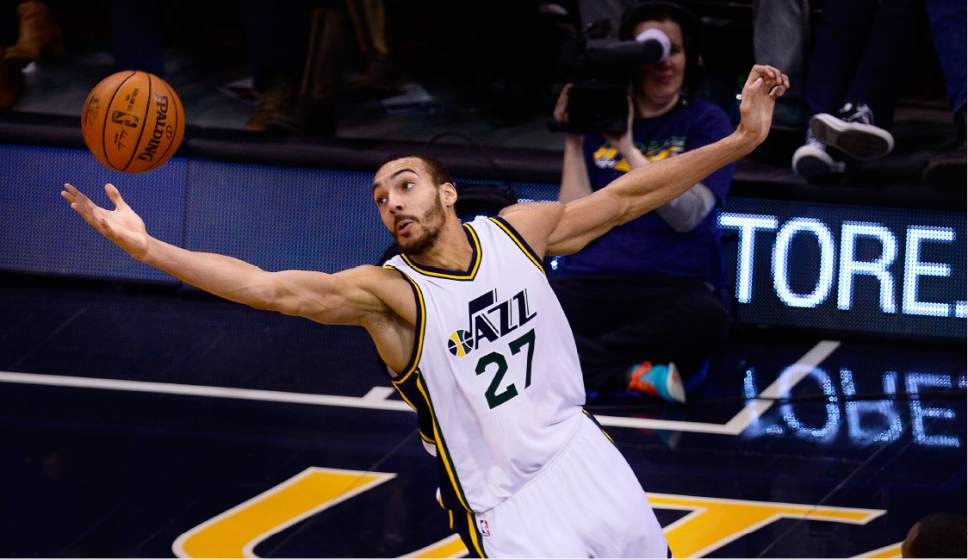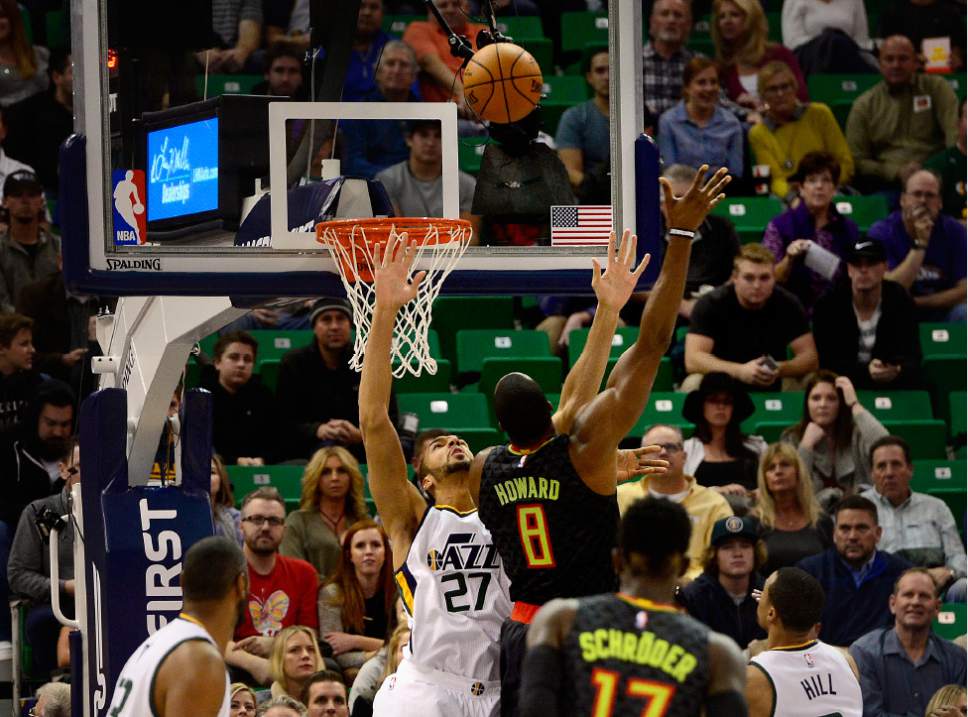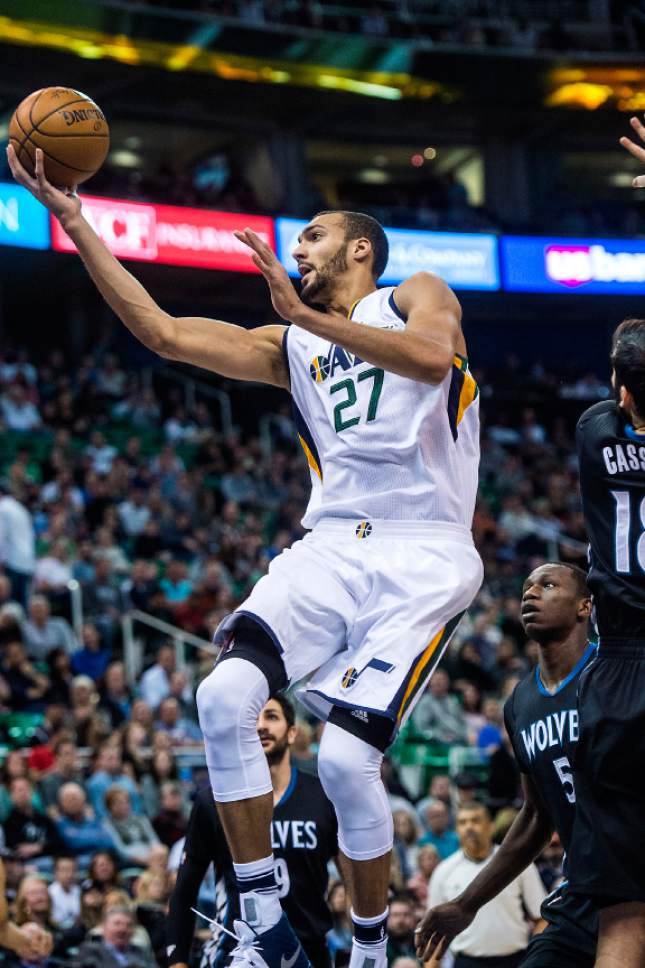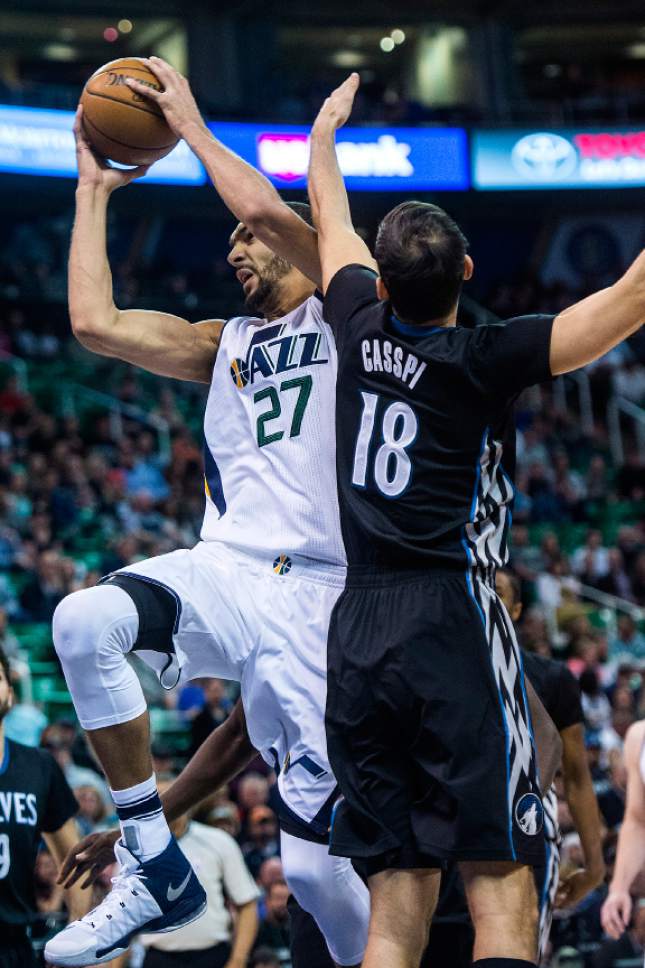This is an archived article that was published on sltrib.com in 2017, and information in the article may be outdated. It is provided only for personal research purposes and may not be reprinted.
Rudy Gobert's words came at just the right time, comforting people in need.
That's a fair description for the Jazz fan base, which has been reeling from losing Gordon Hayward to the Boston Celtics in free agency. The phrasing was jumbled slightly, but the sentiment was reassuring. "There's probably going to be some surprise at what we're going to do this year," Gobert told members of the Utah media at the Las Vegas Summer League.
That's the Jazz's best strategy at this stage: regrouping, bonding and surprising some people.
Gobert hit the proper notes. He expressed just the right degree of disappointment with Hayward and the whole process and promised the Jazz would overcome his absence, while stopping short of any outlandish predictions. He sounded determined, not defiant. Gobert just said he would dismiss the forecasts of "a bunch of people [who] don't even know what's going on."
Gobert spoke quite reasonably in those five minutes. That's what I liked about the interview. And he also told ESPN.com regarding Hayward's move that he's "over it."
How good is that advice?
Here comes the next phase in the evolution of Gobert and the Jazz. He's the team leader now, and he knows it. He also needs to accept some of the responsibility that comes with that job. Gobert has to rein in some of his social media antics as a face of the franchise. He has to pick his spots in being critical of his teammates and keep improving on the court.
The Jazz will become even more of a defense-oriented team in 2017-18, as cemented by the free-agent signing of forward Thabo Sefolosha, who's more of a defender than a scorer. The defense will be outstanding, revolving around Gobert inside, but the Jazz also need every bit of offense they can summon. That includes Gobert, who's both highly efficient and very limited offensively. He finished third in the voting for the NBA's Most Improved Player award, and he needs to make another jump this season.
And keeping the Jazz anywhere near their 51-win level of last season will take a lot of creativity from coach Quin Snyder. "We'll have to find different ways to score and to get guys involved," Joe Ingles told NBA Australia, "but I'm pretty confident we've got the coaching staff that will be all over it."
Some published metrics actually say the Jazz will win more games than Boston this season, even after the Celtics went 53-29 last year. To believe that, someone would have to figure rookie guard Donovan Mitchell's Summer League scoring average will replace Hayward's 21.9 points in the regular season. Mitchell is showing to be a shrewd draft pick, but that's not happening.
So those metrics are illogical. The Westgate Las Vegas SuperBook's NBA championship odds are 10-1 for Boston and 200-1 for the Jazz. Even if those numbers mostly reflect Golden State's presence in the West, playing in the East will enable the Celtics to win a lot more games.
That's not the Jazz's biggest issue, though. As Gobert said, their biggest concerns are trying to improve and compete in the West.
Any comparison to the team's 2003-04 season is risky because it places the loss of Hayward in the same category as the departures of John Stockton and Karl Malone. Yet the history lesson applies because that 2003-04 Jazz team showed what a combination of low expectations, hungry players and great coaching could do.
Some observers thought the Jazz would be historically bad, but they went 42-40 and barely missed the playoffs. Andrei Kirilenko became an All-Star, Matt Harpring and other players emerged and Jerry Sloan did some of his best work in coaching an overachieving team.
That's what has to happen in 2017-18, starting in the middle with Rudy Gobert and expanding from there.
Twitter: @tribkurt


